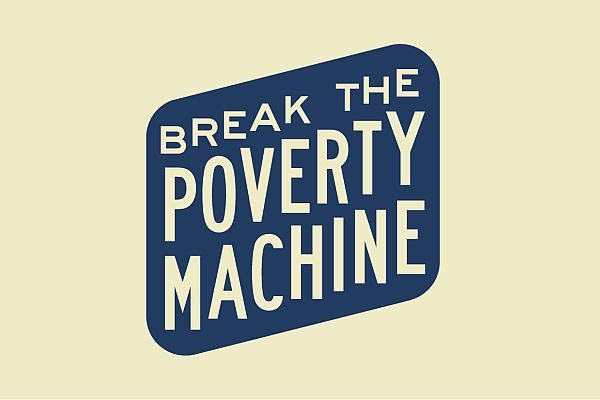Unemployment is not a moral failure. It is structural and it is by design.
As we confront the spectacle of yet another federal budget circus, policy makers, economists and commentators have reticently begun to question accepted wisdom about the definition of full employment. These murmurs are a tacit admission that flawed logic about the ‘natural’ rate of unemployment has informed policies that intentionally kept at least four percent of the labour force out of a job for nearly fifty years. It is an admission that forcing millions to starve in service to wage suppression was not only unnecessarily cruel, but counterproductive economic management.
The truth behind the ‘dole bludger’ myth is that we are a reserve army of labour – a class of people created purposefully to discipline waged workers. The fabricated stereotype of a young layabout exists for one purpose: to justify denying people who rely on social security payments our right to basic necessities.
Unemployed people must be denigrated to cultivate the belief that we’re less deserving than the waged workers fetishised by politicians; to create a social license for punishing us with poverty while we do the graft of keeping downward pressure on wages and inflation.
Contrary to the image of an able-bodied white guy in his twenties, the reality is that those left to languish on unemployment payments are much more likely to be disabled, chronically ill, single parents or more than fifty years old. Blak folks, migrants, transgender people and those who’ve been brutalised by incarceration are also overrepresented. Our social security system is flooded with people marginalised and discriminated against across every section of society, especially in the workforce.
*
Unemployment is not the sole driver of poverty for people who rely on JobSeeker or a related payment. There are hundreds of thousands of employed people who earn so little in paid work that they still depend on an unemployment benefit. The unemployment rate doesn’t account for people who have a job, but not enough to live on, because they have too few hours or are paid too little. But we are all workers. Unwaged, underemployed and insecure workers all contribute immense value to our society through the informal economy. However, just like most paid workers, we are not fairly compensated for our labour.
Almost every person works or contributes something of social value, regardless of whether or not we receive any payment for our contributions. This reproductive labour is crucial to the functioning of the formal economy. ‘Employment’ is not a synonym for ‘work’. Artists, those who provide support and care to family members and friends, or protect the environment, all are workers, only some of whom are financially compensated for their work. Some work may be unwaged, but this does not diminish its value.
Poor people in this country, in paid work or not, are tired. We are tired of being kicked by our those with more power than ourselves. Tired and angry about being used as a political football and a political tool designed to hurt waged workers, rather than human beings with rights who deserve care, support and the ability to afford the basics we need to live. Instead, we are forced to try and eke out the barest existence on payments as low as half the poverty line.
*
If living in crushing poverty wasn’t enough, unwaged workers are being forced to perform endless, useless activities that fail to get us paid work.
Starting under Keating, activity testing requirements have been ratcheted up with each successive government, to the point where the free labour of an unemployed person is now available to any business, charity or local government who desires it. Through schemes like Work for the Dole, the Community Development Program and Youth PaTH, private organisations are given public money to exploit people surviving on a poverty payment.
Last month marked the five-year anniversary since teenager Josh Park-Fing was killed in one of these programs, and no one has answered for his death. Conditions on Work for the Dole sites – more than 60 per cent of which don’t meet basic safety standards – are what prompted the formation of the Australian Unemployed Workers’ Union in 2014. From top to bottom the employment services system is notoriously dangerous, and the need for unemployed workers’ organising has become more evident over the years the AUWU has existed.
The (un)employment agencies tasked with policing income-support recipients have complete power to cut us off. The kind of power unimaginable to a waged worker, who isn’t under threat of having a pay cheque withheld simply for missing a meeting or submitting a report late. But for those who fall short of their ‘Poverty Performance Indicators’, the only hope is to beg, steal and borrow to get by. All this punishment meted out for existing whenever or wherever the is no work to be had.
The only thing these ‘mutual’ obligations achieve is to divert us from things that would help us get work – and line the pockets of poverty profiteers.
Living in poverty and being subjected to demoralising, dehumanising ‘mutual’ obligations doesn’t just mean we can’t afford to eat or find the time to look for a sustainable job: it has catastrophic mental and physical health effects. Ultimately, our welfare system kills people.
This system has been carefully calibrated to protect the government from all responsibility and accountability, and it is functioning perfectly.
*
For decades, unemployed workers have been relentlessly attacked, used as fodder for the political machine, and weaponised against waged workers. And things are only getting worse.
The current government is dialling up the pressure, designing policies that incentivise short-term, low-paid, unsustainable jobs to replace the stable full-time and part-time jobs lost during this recession. That is the sinister motive behind hiring subsidies created to incentivise employers to hire more people into worse jobs.
As antipoverty activists, we know we must unite all low-income workers by centring the relationship between poverty and wages, and the declining wage growth this country has experienced in the past ten years. It is vital that the broad left and our movements begin to see that the rights of waged and unwaged workers are intrinsically linked.
The Australian Unemployed Workers’ Union is not the first unemployed workers movement to point out this reality. And unless the broader labour movement recognises that an attack on unwaged workers is an attack on waged workers – and joins us in the fight to live with dignity – we will not be the last.
*
It is the government’s responsibility to make sure everyone has enough to cover the basics as is our fundamental right – and as enshrined in the International Covenant on Economic, Social and Cultural Rights.
We know the community is with us. People in this country do not want their fellow citizens being homeless, destitute or unhealthy because we can’t afford medical or dental care.
Even before the government showed that payments can easily be lifted above poverty levels, 84 per cent of people agreed that ‘no-one should have to go without essentials like food, healthcare and power’ when asked about their attitude to the Newstart rate. In May 2020, 28 per cent of people agreed that the full COVID supplement should be retained, which would bring the JobSeeker rate up to the Henderson Poverty Line, and 57 per cent said that JobSeeker should be at least as much as the pension rate.
Before COVID, eight out of ten people on unemployment payments were regularly skipping meals, and Anglicare found that only nine rental properties in the country were affordable for people on JobSeeker. With luck, some managed to afford school uniforms and pay the bills on time. For most, healthcare was an unaffordable luxury and dentistry was completely out of reach. There are now more than 1.3 million people on unemployment payments facing this reality – 500,000 more than in February last year.
To much fanfare, in February 2021 the Coalition announced ‘the single-largest increase in the JobSeeker payment since the mid-’80s’. In practical terms it was a $100–180 cut, but thanks to decades of bipartisanship on punishing people out of waged work, prima facie it was true. But not to the few of us who looked more closely.
Things are grim, and they’re going backwards. The ‘increase’ actually leaves people further below the poverty line than they were before the pandemic.

Poverty line data is from https://melbourneinstitute.unimelb.edu.au/publications/poverty-lines and payment rates are from https://guides.dss.gov.au/guide-social-security-law/5.
*
The budget surplus fallacy has now been debunked. COVID exposed that the true cost of a balance sheet surplus is a social deficit. In the UK and the US, governments are implementing meaningful tax increases on corporations and the wealthy.
The $550 per fortnight COVID supplement was a response to a crisis. Unemployment and economic insecurity are crises that deserve the same dramatic response. We have just shown how easy it is to pull people out of poverty. We can and must do so again.
Eventually, guaranteeing a liveable income to all who need support must become a staple of social security.
We refuse to take a weak position just so politicians feel comfortable when we ask them for what we are entitled to – which is to have enough to live, enough to afford the basics. And that’s all we’re asking for. That is what the poverty line delivers.
We must bring all income support payments above the poverty line, which is currently $85 a day. It is the first step we must take towards a functioning, supportive social security system, but it isn’t the last. It is a step that should be taken immediately, not at some unspecified time in the future once it has become ‘palatable’.
People who have done little to progress left causes need to take a step back and stop talking down to us. We are the experts in this system – not politicians, not businesspeople, not academics, charity workers, media dilettantes, think tankers or even those who were poor in the 90s – because we have to struggle to survive in it every single day. And we have solutions. It is time for us to be taken seriously.






